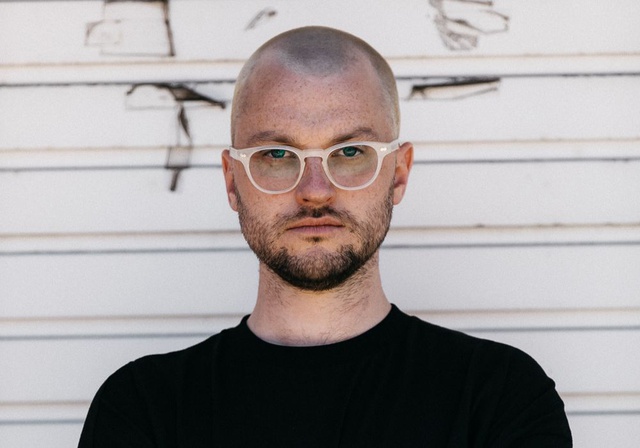What I've Learned From Running an Agency for Neurodivergent Writers, Actors and Creatives.
27.03.23
The next piece in Giverny Masso's series on neurodiversity in the arts comes from sound designer, performer and writer Adam Welsh, who set up his own agency for neurodivergent creatives.
Adam is senior agent and founder of Divergent Talent Group, the UK’s first talent management company exclusively representing neurodivergent creatives. His own experiences as a neurodivergent artist, self-producing and working across many different creative roles, gave him a unique insight into the barriers many other neurodivergent creatives face in the industry.
Giverny Masso is an arts journalist and the senior reporter at theatre newspaper The Stage. She is also a theatre maker, with her most recent project being a devised show as part of the Arcola Theatre’s Mental Health Company.
You can read the first blog post from this series here as well as a readers' reponse here and Ali Wilson's piece on How Arts Organisations can be More Neurodivergent-Friendly here.
Just about anyone can become an agent. I mean, they let me be one. After receiving a late ADHD diagnosis and struggling to sustain a career as an artist, I founded Divergent Talent Group. If only being an artist in the film, theatre and TV industries was quite so accessible!
Artists don’t often become artists to make money, which is just as well, because rarely are they the ones who decide if their work is worthy of an income. And it’s even more challenging to make a living as an artist if you are disabled or neurodivergent.
Running the agency has been eye-opening in terms of understanding how to meet the needs of neurodivergent artists. The barriers they can face – such as difficulties with planning, time management, processing information or regulating emotions – are too often perceived by others as “poor behaviour”. If you’re working with a wheelchair user, then it’s pretty well understood (one would hope) that you’re going to need a ramp. If you’re working with a neurodivergent person, what’s the ramp? The adjustments that need to be made for these artists can seem mysterious or amorphous, even to the artists themselves. These barriers are so often invisible.
Neurodivergent artists can be exceptional at lots of different things, often out of necessity. Many are multi-hyphenates because they’ve hyper-focused on their passion to the exclusion of everything else, but no one tells them they need to make a plan on how they’ll translate this passion into an income. So, they move on. They try something else, but get unbearably bored of it or lose all confidence or even lose their job because they were seen as “weird” or they just burn out. Neurodivergent artists diversify their skills in order to survive, but then many employers look at their CVs and don’t know what to do with them because their experience is too broad and what they “do” can’t be placed neatly in a box.
This is a shame, because somewhere in this defiance of easy categorisation is what makes neurodivergent artists such fine innovators and pioneers. Somewhere in the restless mind of the neurodivergent artist, where settling for a singular expression of anything is just not enough, somewhere in the borders, the liminal spaces and the contradictions is where great art is made.
That's why it’s essential that companies who work with neurodivergent artists design their projects so that they are fully accessible from the start. Access should be ring fenced in budgets and planned for because surely you want these artists to succeed? Working with neurodivergent and disabled talent makes excellent business sense and can have the most surprising outcomes. I’ve spoken with production companies who’ve made TV shows with fully integrated access strategies and not only have they come in under budget and on time, but there are also examples where the artistic output exceeds all expectations.
I’ve learned that if you assume that everyone might have their own individual access needs, this can make a meaningful shift towards inclusion. Make it standard practice to ask someone what their access needs are. Even if they don’t know what to say, that’s ok - paying attention to access at the start of a process can be transformative in the longer term.
If you're a producer or a company looking to work with neurodivergent artists, don't be afraid to take the first step. It may seem daunting, but the rewards are immeasurable. There’s still some way to go in making the industry truly inclusive, but by anticipating that everyone might have some kind of access requirement, you dismantle some of the barriers and transfer some of the power to those who need it the most. The people making the art.
For better or worse, I’ve learned that agenting can be a form of activism. I try to remain reasonable and balanced, but my priority is always the artist. While anyone can become an agent, good agenting really means that you are willing to put your neck on the line for your clients. As an agent, you have a responsibility to defend and advocate for artists where no one else will. As an agent you stand at the juncture between industry and art, and by pushing for change from this position, you have a real shot at creating more inclusive and accessible environments for all. I’d say that’s worth fighting for.
Have you experienced barriers to your working style? Have you collaborated with any companies who met your needs well and fully facilitated your creativity? Please do let us know, we'd be really interested to hear your thoughts.
If you'd like to keep up to date with all our blog posts, important and interesting stories in the worlds of theatre, arts and media, plus job ads and opportunities from our industry friends, sign up to our daily media briefing at this link.



